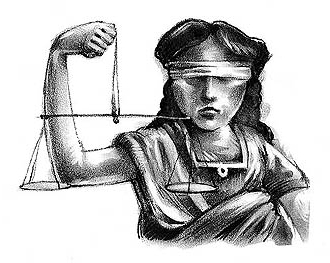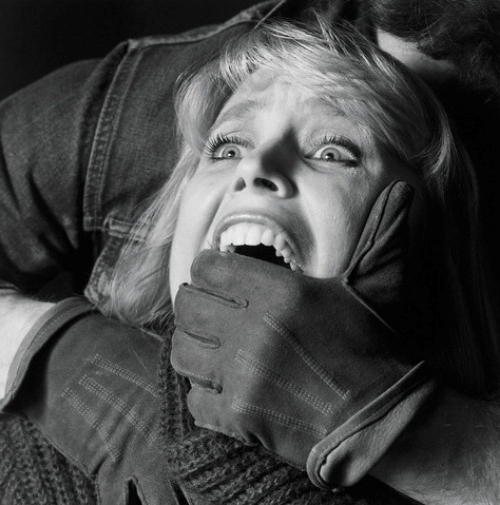With the advent of the state, it became necessary for people to fix the most frequent and serious types of behavior that deviated from generally accepted norms. If previously the punishment for such acts was implemented by society itself, now this function has been assigned to law enforcement agencies. In this regard, all society was forced to analyze these acts, consolidate them legislatively, previously qualifying.
From the foregoing, it becomes clear that people began to divide atrocities into categories since ancient times. But what are the types of crimes today? Classification of offenses can be made on various grounds. Some of them are considered in this article.

The concept of "crime"
The Criminal Code of the Russian Federation enshrines the concept of "crime" in Chapter 3, Art. 14. According to him, a crime is a committed dangerous act with the presence of guilt, which is punishable by law.
A crime will not be an action (inaction) that did not pose a threat to society, although it contained any other signs of offenses provided for by this Code.
Crime Categories
The classification of crimes is the division of acts established by the Criminal Code of the Russian Federation, on any grounds. So, the actions of the defendant, based on the degree of his guilt, can be intentional and committed by negligence. Depending on the object of the crime, all offenses in the Special Part of the Criminal Code of the Russian Federation are divided into economic crimes, crimes committed against the person, against public security, against human peace and security, as well as military and crimes against state power. Each such species is enshrined in a separate chapter of the Code.
The Criminal Code of the Russian Federation classifies crimes based on their severity. Such a division involves acts of small or medium severity, as well as grave and especially grave.

Types of crime depending on the forms of guilt
Crimes of the Criminal Code of the Russian Federation can be divided depending on the forms of guilt into intentional and reckless. Moreover, the second type of offense is a crime only in those cases that are provided for by the Criminal Code of the Russian Federation, its Special Part.
An action is recognized to be committed innocently, that is, it is not a crime when the person committing it did not realize and could not realize that this act was generally dangerous, or could not foresee and could not assume the possibility of the onset of generally dangerous consequences.
Premeditated crime
Intentional atrocity is an act committed with intent (direct or indirect). Criminal Code offenses with indirect intent are acts committed by a person who was aware of their social danger, foresaw the onset of dangerous consequences, but did not want them to occur or was indifferent to them.
A criminal offense with direct intent is acts that a citizen committed, aware of a public threat, foresaw the inevitability or likelihood of the onset of generally dangerous consequences, and wished them.
Negligent crime
An act of negligence is an act of a criminal nature, carried out by frivolity or by negligence. At the same time, frivolity is understood as the situation when a person foresaw the probability of occurrence of events dangerous to society that occurred as a result of his actions (inaction), but unreasonably hoped for their independent prevention.
By negligence, it is assumed that the offender did not foresee the possibility of events dangerous to society and the likelihood of similar consequences as a result of his actions (inaction), although he should have and could if he had been more attentive and prudent.

Types of crimes according to their degree of danger
As noted above, the classification of crimes in criminal law is given according to their degree of danger.
When a citizen is convicted under any article, his act is typified taking into account this criterion. Moreover, taking into account various circumstances, the court has the right to change the category of offense to a less severe form, but not more than one rank. A person sentenced for a crime of moderate severity may be sentenced to imprisonment for a term of not more than 3 years, for a grievous one - not more than 5 years, and for a particularly grave one - 7 years.
Such a classification of crimes has existed since ancient times in foreign countries. As for Russia, back in 1903 in the Criminal Code the division of crimes was carried out into serious (with the highest degree of punishment: death penalty, hard labor or exile), less serious crimes (with the punishment of imprisonment in a correctional house) and misconduct (with punishment in the form of a fine or arrest).
Minor crime
Crimes of a small degree of gravity are acts of a willful and reckless nature, for the commission of which the legislator provides for no more than 3 years of imprisonment. The concept of this type is indicated in the Criminal Code, Art. 15, part 2.
Since the classification corpus delicti allows you to give him a legal assessment, determine the relevant article of the law, and therefore determine the type and extent of responsibility of the accused, consider a few examples.
Minor offenses include, for example, the intentional infliction of slight harm to health (Article 115 of the Criminal Code of the Russian Federation). Such an act entails one of the penalties: a fine of up to 40 thousand rubles (three monthly salaries of the defendant), compulsory labor up to 480 hours, correctional labor for a period of up to one year or arrest for a term of up to 4 months.
If this crime is committed out of hooligan motives, because of political, religious, national, ideological hatred, using weapons, then it also refers to acts of minor gravity, but is punished more severely. Namely, compulsory labor up to 360 hours, correctional labor up to one year, arrest up to 6 months, two years of restriction / imprisonment or forced labor.
Under the light bodily harm implies short-term health disorder or insignificant permanent disability.

Moderate Crimes
Medium crimes are intentional acts for the commission of which the legislator punishes no more than 5 years of imprisonment, and reckless misconduct, for the commission of which at least 3 years of imprisonment are prescribed.
Such crimes include, for example, the killing by a mother of her newborn child at the time of birth or immediately after it, and also if the woman is sane, but was in a state of mental disorder or in a situation that injured her psyche (Article 106 of the Criminal Code of the Russian Federation).
Or, for example, a murder that was committed in the state of passion (Article 107 of the Criminal Code of the Russian Federation). Affect is understood as a state of great mental anxiety caused by bullying, violence or violent insults (other similar actions) by the victim or a long psycho-traumatic situation related to the immoral, unlawful acts of the victim.
The crime provided for in Article 106 is punishable by restraint of liberty for a period of 2-4 years or by forced labor or imprisonment for a period of up to 5 years.And the crime provided for in Article 107 is correctional labor up to 2 years or restriction of freedom / forced labor / imprisonment up to 3 years.

Serious crimes
Serious crimes are intentional acts for the commission of which the legislator assumes sanctions of imprisonment of no more than 10 years.
These include, for example, the intentional infliction of grievous harm to health (Article 111 of the Criminal Code of the Russian Federation). Serious harm to health means actions, as a result of which the victim lost his hearing, vision, any organ, his pregnancy was terminated, mental illness, drug addiction, substance abuse occurred, irreparable disfigurement of the face occurred, general form of disability by at least 1/3 , the complete deprivation of his professional disability, or there was a threat to the life of the victim. The sanction in this case is up to 8 years in prison.
Economic crimes can also be serious. For example, the organization of an illegal banking activity by an organized group, as a result of which major damage was caused to individuals or legal entities, to the state. Such a crime is punishable by forced labor up to 5 years or in the form of imprisonment up to 7 years together with a fine (1 million rubles or wages / income of the defendant for 5 years) or without it.

Particularly serious crimes
Particularly grave acts are special crimes of a deliberate form of guilt, the law provides for the most severe punishment - imprisonment for a term of more than 10 years or another more severe sanction.
So, for a murder (a deliberate act that resulted in the death of a person), according to Article 105 of the Criminal Code of the Russian Federation, a criminal receives a term of 6-15 years with restriction of liberty for a period of up to 2 years or without it. And for the rape of minors or the rape that caused serious harm to the victim through negligence, his infection with AIDS, etc., the legislator punishes the offender with imprisonment for 8-15 years with a ban on certain activities for up to twenty years (possibly without one) and two years of restriction of freedom.
The role of classification of crimes in the Criminal Code
The classification of criminal offenses plays an important role in criminal law. First of all, of course, it determines the punishment. Its term, type and size.
Based on the categories of various acts, the construction of institutions and legal norms takes place. Moreover, the classification of crimes allows us to make the laws more concise, convenient, clear.
Based on the division of crimes into categories, the legislator determines their statute of limitations, types of relapses. And also classification is important for determining the retroactive effect of criminal laws.

Thus, the concept and classification of crimes, as well as the role of categorization in the Criminal Law of the Russian Federation, were considered above. Drawing conclusions on the importance of categorizing offenses, it is important to note that those who are entrusted with the duty to apply the law are obliged to correctly typify the act committed by the defendant, taking into account all the nuances.
